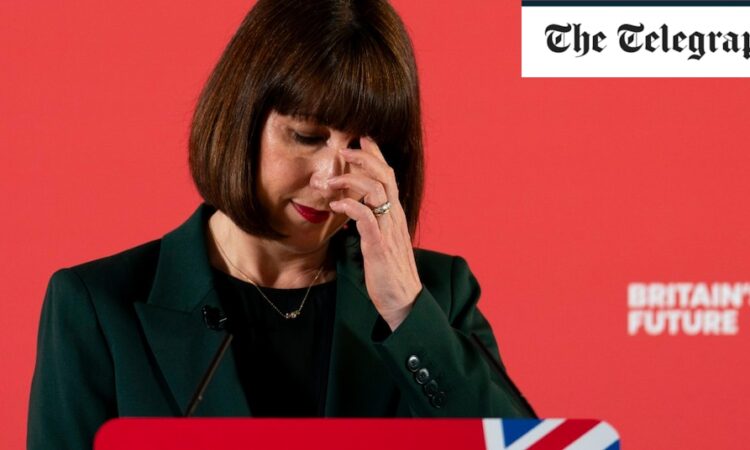
If Britain gets lucky, it will achieve around 2pc growth – better than nothing, but still woeful compared to what’s been witnessed in the United States over the past decade, or more importantly what’s needed in the UK to sustain core public services.
But this is the toxic loop Whitehall finds itself in: a combination of higher taxes and stricter regulations are designed to fill in the funding gaps, which often become worse thanks to a high tax burden and burdensome regulations that stifle economic growth.
This makes the narrative of this election all the more jarring: on the one hand every major political party – from Labour to Reform UK – is talking about the merits of growing the economy. They know they’ve reached close to the maximum they can tax and spend without increasing overall revenue.
It’s also how Labour seems to want to make good on its lofty promises for fairer pay for the public sector, for more money for the NHS and for substantial investment into Great British Energy, so that it can get more green projects off the ground.
And yet the consensus for growth seems to go hand-in-hand with the consensus for a burdensome tax regime, which is only going to worsen in the coming years as tax thresholds stay frozen, dragging millions more people into not just paying a higher rate, but into paying tax altogether.
The main focus on the first full campaign week has been to pin Labour down on what other taxes it plans to raise. In addition to the tax increases announced so far – which include a bigger windfall tax on oil and gas companies and adding VAT to private school fees – what else might the party target?
So far it has ruled out major tax increases – including income tax, National Insurance, wealth taxes and corporation tax (this last one only pledged for their first term in parliament). But that has left practically every other tax on the table, which could potentially be raised.
Labour are being pressured into a “read my lips” moment – and they have almost got there. Answering questions after her first major speech during this campaign, shadow chancellor Rachel Reeves insisted that “there are no additional tax rises needed beyond the ones that I’ve set out”.
Meanwhile, Sir Keir Starmer implied multiple times over the past week that his party is done with tax-rising announcements, promising that “that none of the plans that we’ve drawn up, nothing in our manifesto, is going to require us to raise taxes”.
But as important as it is to press the party ahead in the polls about their plans for tax hikes, what about the plans that are already in place? This week Jeremy Hunt confirmed that were the Tories to be back in No 10, income tax thresholds would stay frozen until 2028 – a freeze that Labour agrees it won’t undo, as it doesn’t want to make any pledge that’s uncosted.






